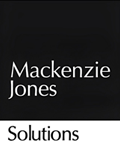
At Mackenzie Jones we have seen a significant trend this year towards Corporate Governance, Risk, and Strategy within Senior Management and Board level positions. Most of the largest banks in the UAE already have well-defined and transparent board selection and nomination processes.
However, the emergence of new regulations — including Basel, IFRS and those issued by the Central Bank of the UAE — are increasing the need for transparency, professionalism and objectivity within the banking industry.
In relation to this, ensuring that Banks’ approaches to corporate governance are in line with leading international practices, is critical to the success of the Banking industry in the UAE.
So what are the leading international practices within corporate governance? And what are the areas that Boards need to be aware of that the emerging regulations may seek to address?
Quality and Diversity of the Board of Directors
- A Bank’s Board must be diverse and have the right balance of skills, diversity and experience including capital markets, risk management, audit, finance, regulatory, strategic planning, compensation, compliance and information technology (IT).
- The recruitment and selection of Board of Directors including Independent NEDs needs to be robust and should be treated like any other C-Level search.
- A recent international law in California also mandated that as part of its own inclusion agenda this year that all Boards should be comprised of a proportionate number of women to men across the Board by 2021. Will there be some mention toward gender parity in the new regulations?
The problems we encounter with Board quality and diversity often come with companies sourcing from a limited talent pool with Board members holding some relation to the Board, Company, or Investor base. This means that these Boards are not entirely independent or objective and occasionally lack the skills, diversity and experience of an independently adjudged skills based Board.
The question of gender parity addresses one such area, but more specifically for me highlights the wider problem that access to the Board should not be an ‘exclusive’ club and should ‘include’ it’s members based on skills, experience and knowledge. An independently and objectively selected skills base Board should be sufficiently diverse across all areas including gender.
I believe an even larger problem comes where Boards appoint an ‘Advisor to the Board’ who acts as a conduit to and from the business. In essence, this creates a funnel of information, where all information is passed through just one person, and therefore means the Board is both not in touch with the business directly, and are completely reliant on the information coming from just one source.
Overseeing implementation of the Bank’s governance framework
There are typically three lines of defense when it comes to Risk Management.
- Risk policies, procedures and strategy including ERM Frameworks, Risk Appetite and Risk Limits, and all regulatory risk requirements. The Board of Directors and Executive Risk Committee are responsible for ensuring sufficient Risk controls are implemented and management, as well as ensuring that the Risk culture is embedded within the values of an organisation.
- The Risk Management function, led by the CRO and Risk Management Committee. This is the management, monitoring and reporting of Risk across the organisation.
- Internal Audit its main task in respect to risk management is to provide independent assurance to the Board of Directors and the senior executive that the risk management processes are adequately working within the first and second lines of defense.
A recent study by McKinsey suggested that “By 2025, risk functions in Banks will likely need to be fundamentally different than they are today.” (“The Future Of Risk Management”) this is particularly true when we take into account the impact of technology, machine learning and AI.
The landscape of Banking is also changing, the difference between a traditional Bank and a FinTech or Disruptor, is the Bank has a strategy and plan for growth this is usually very linear “this is where we are now (x) this is where we want to get to why (y) and this is how we are going to get there (x+y)” . The FinTech or Disruptor, by contrast, starts with a concept an idea, and says “this is where we want to get to (x)’ and the first question it asks is “so how are we going to get there?” Traditional ways of thinking do not work inside this conceptual and innovative space where new solutions are being sought and created, as such we need to start to think “outside the box”.
Organisational structure and management
- It is essential for the Board to have the experience, skills and knowledge across all areas of the Bank and to oversee selection ensuring all members are “fit and proper” and that in all cases a structured and objective recruitment process has been adhered too.
- The Board is responsible for ensuring the organisational structure and management is fit and proper.
- The Board is also responsible for overseeing and ensuring the implementation of business strategy, risk management and internal controls, and ensuring succession planning for all senior management positions, specifically those that are critical to these areas.
- There are also a number of key committees for Risk & Compliance, Audit, Compensation & Nomination, and Management & Strategy.
I often get asked “what do Headhunters do?” and my answer is always the same. These days our role is less about simply “finding people”… quite frankly, anyone with a LinkedIn account can do this to a degree! What we do is more to do with attraction and assessment, we conduct extensive research as part of our due diligence to ensure best fit by looking at the whole market. We then use our skills to engage and attract candidates, and finally we use the latest assessment techniques to evaluate an individual’s professional and personal fit to an organisation. Ultimately, we advise our clients on a selection of individuals and options and help them in the process of carefully selecting the right one, using all of the information available to make an objective decision.
Succession planning is often one of the hardest things to judge as you are trying to assess “potential”, this is when having all of the necessary tools, skills and experience is invaluable to us being able to advise our clients with all of the information to make an objective, unbiased decision.
Appropriate escalation and whistle-blowing policy and procedure
- A key aspect of effective Governance is to ensure transparency and ethical business practice.
As such, it is widely accepted that all Banks must have an anonymous whistle-blowing policy and an independent escalation committee under which individuals should be able to raise any concerns. What’s more, the International best practice would suggest that these policies and procedures should be consistent with the company’s values and seen as part of the company’s long term success. (FRC UK July 2018)
Defining the Corporate Culture
- It is incumbent on Boards to define the corporate culture, and embed the Banks corporate values throughout the organisation.
A Harvard Business school management book “Blue Ocean Strategy” was one of the first books to come up with the concept of creating a “Unique Value Proposition (UVP)”, defining your corporate values by understanding what your customers want, identifying your brand, product and service through a customer centric approach.
The Board will also be responsible for the compensation and benefits policy, ensuring adherence with the regulatory requirements for Bank incentives schemes. The UK advocate transparency of all Directors pay and incentives.
Additionally, all corporations should have a code of conduct and the Board is responsible for ensuring this is upheld.
Primarily, shouldn’t all business start with a customer first approach?
Annual assessment of Board, Senior Management and Committees performance:
A key component of understanding the effectiveness of Boards is an objective assessment of performance, this includes the Boards ability to set objectives, develop effective strategies, ensure effective risk management, have effective communication including working effectively as a team and working effectively with senior management.
The whole purpose of good corporate governance is based on accountability not only in ensuring effective controls and management but in adding value and improving performance.
Corporate Governance Reporting
The onus shall be on the Banks Board to demonstrate that they have implemented a comprehensive approach to corporate governance.
In July 2018, the UKs Financial Reporting Council (FRC) revised the guide on Corporate Governance Reporting and Board Effectiveness for companies in the UK, which followed on from a major wider reform in 2017. The essence of this being to increase investor confidence and trust in UK based companies by achieving higher levels of governance, including transparent reporting including controls, understanding long term strategy and objectives, and an understanding of how corporate governance is applied.
It is my view that no matter how far the regulations go, these are merely a code, how this code is deciphered and implemented should be the beating heart of a business. The added value is that higher levels of governance increase investor confidence and trust in UAE based companies.
In essence, good corporate governance equals good performance!
Mackenzie Jones’ event “Building the Board: an insight into governance, performance and assessment in the UAE” is on the 29th November 2018 at The Capital Club, DIFC





